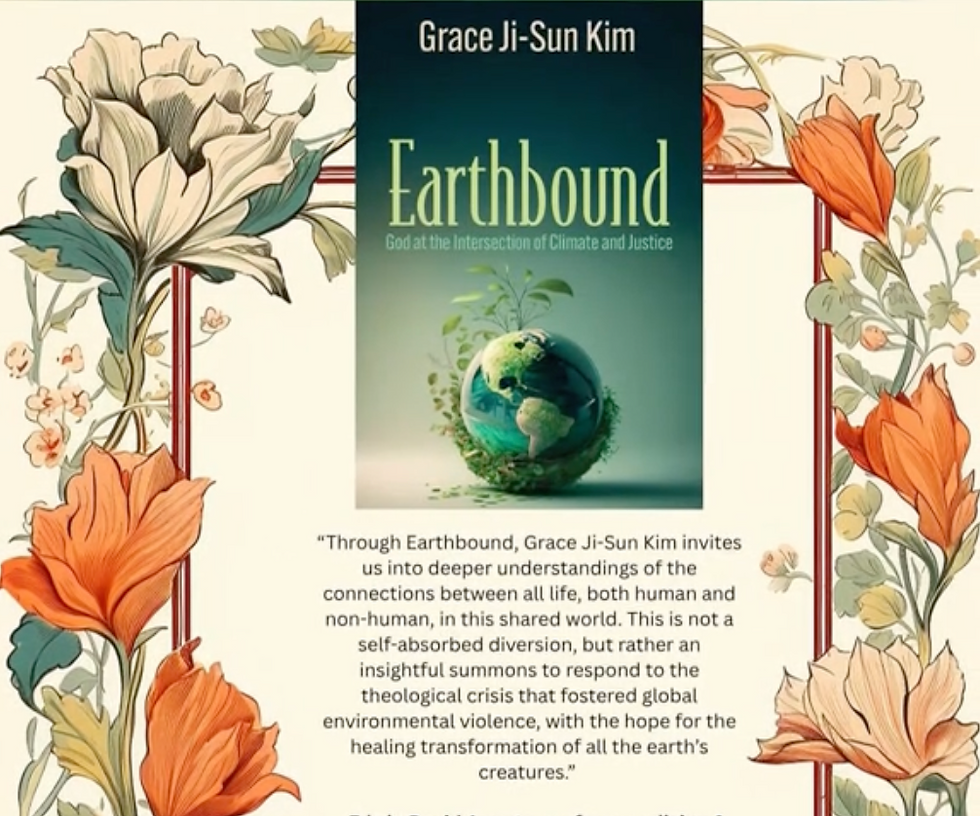Book Review: Honest to Goodness
- Rick Bonetti
- Mar 1, 2022
- 4 min read
Updated: Nov 27, 2022
Honest To Goodness

Honest to Goodness (2019) by Martin Prozesky explores what it means to be a Christian when governed by ethical values.”
Prozesky is an academic theologian and ethicist who points to “goodness as the reality that drives everything that is noble and lasting valuable in our existence. Goodness itself requires that we make every effort to protect and enhance all that is already good in the world, and to transform all that is not good.”
This scholarly book traces the author’s semi-autobiographical “ethical and spiritual odyssey’’ over a span of 50 years in the Episcopal and Anglican tradition. His faith evolved from his early years of conservative Christianity, then gradually adopting more liberal views, and finally ending up embracing progressive Christianity. He found a “new Christian radicalism far closer to Jesus himself and the great spiritual and ethical movement he launched.”
Prozesky’s most important contention of the book is: “Supreme goodness is the only true foundation for faith and practice, and everything in Christianity, and every other faith and philosophy, must align with and serve it or lose moral depth, spiritual credibility, and power.”
He lists principle facets of goodness: love, truth, justice, respect, generosity, active care for others, freedom without harm, inclusiveness, non-violence, respect for life, tolerance, equal rights for all, gender justice, beauty, open-mindedness, judicious criticality. Love and truth are foundational. Truth-loving includes unfailing respect for factual evidence and logical consistency.
Using the norm of “perfect goodness”, Prozesky concludes that “too many of the very influential belief and practices of conservative Christianity prove too flawed to merit continued acceptance. He agrees with John Shelby Spong who “showed us convincingly, as one who knows his Bible backward, that Scripture contains material that is unethical about the environment, women, homosexuality, children, Jews and what he calls ‘certainty’ – the belief that Christianity has a monopoly on religious truth.”
As South Africa navigated through apartheid, it became “abundantly clear that Christianity can be shockingly ambivalent about central ethical values like truth and socio-economic justice.”
In his loving critique of conservative and liberal Christianity, he laments that “worship and belief are treated as the main business of conservative Christian churches, having priority over ethical practices.” Biblical fundamentalists tend to be inward-looking, in a self-perpetuating way. Religions should be a comprehensive value system first and foremost, rather than belief systems.
He slowly evolved into progressive Christianity and a panentheistic understanding of Godhead. The Abrahamic concept of God as a supreme personal being “is simply too restrictive to do justice to a goodness that is too rich and deep to be adequately contained in any of the models and metaphors we may employ.”He now rejects a belief that God could “ordain the ultimate cruelty and injustice of eternal punishment to those who do not embrace Christ as the only savior.
To be clear Prozesky, is not suggesting an “embrace of materialistic atheism and the belief that the universe of matter and energy that science studies is the only reality, which makes religious faith in transcendence just a delusion.”
He sees the cosmos as the ultimate reality – this isn’t primarily about beliefs, doctrines, and creeds but in goodness, love, and concern for truth.
I feel a resonance with Prozesky’s critique of conservative and liberal Christianity. My personal faith journey has evolved from traditional biblical Presbyterianism, prompted by a quest for the historical Jesus and “living the questions” into a progressive understanding. My path includes some of the same scholars he mentions: N. T. Wright, Marcus Borg, John Dominick Crossan, John Shelby Spong and Lloyd Gerring, but added mystic activist Matthew Fox and contemplative Richard Rohr.
I appreciate the author’s unique perspective from South Africa and his centering on ethics. It makes me wonder if an ethics-first approach could persuade white evangelical followers of Donald J. Trump to re-evaluate the cognitive dissonance of his personality, temperament, and policies with the core value of goodness.
The book is not easy to read because it’s scholarly bent slowly takes the reader through the thought processes of various other scholars to understand nuanced points of agreement and/or disagreement. Concepts are introduced in one chapter and later elucidated in subsequent chapters or Parts. While informative, this style is at times gives more detail than is desired. As such, the book is not easy to skim and get the gist of what is most important.
Nevertheless, I recommend the book as it continues to entice me into greater interest in ethics as a unifying focus – more powerful and universal than religion. I was disappointed that for a book of 309 pages there is only one paragraph on the ethics of saving the earth and its inhabitants from the perils of climate change.
Martin Prozesky is a research fellow on the faculty of theology and religion at the University of the Free State in South Africa. He studied theology at Rhodes and Oxford Universities and at the former Episcopal Theological School in Cambridge, Massachusetts. He did his doctorate on Friedrich Schleiermacher, and has been a visiting scholar at universities in South Africa, the United States, Trinity College, Oxford, and Australia. He is the author of six books.
Honest to Goodness is currently available on Kindle for $2.99 instead of the $38 list print price.
Disclosure of Material Connection: I received this book free from the author and/or publisher through the Speakeasy blogging book review network. I was not required to write a positive review. The opinions I have expressed are my own. I am disclosing this in accordance with the Federal Trade Commission’s 16 CFR,Part 255.



Comments